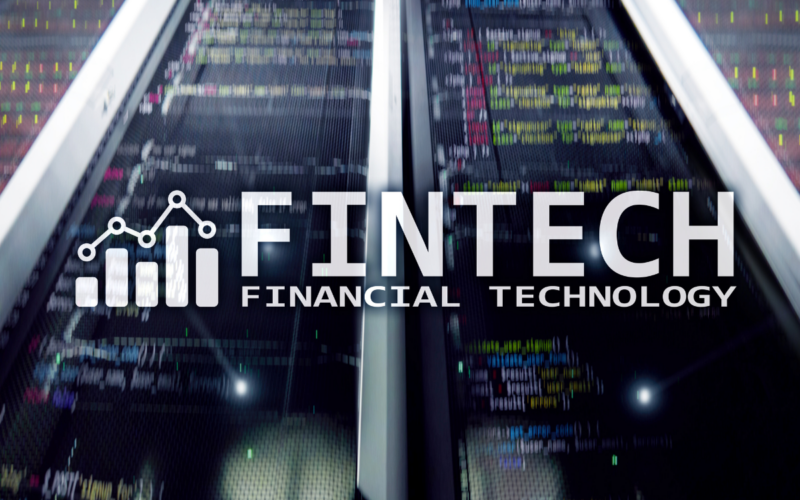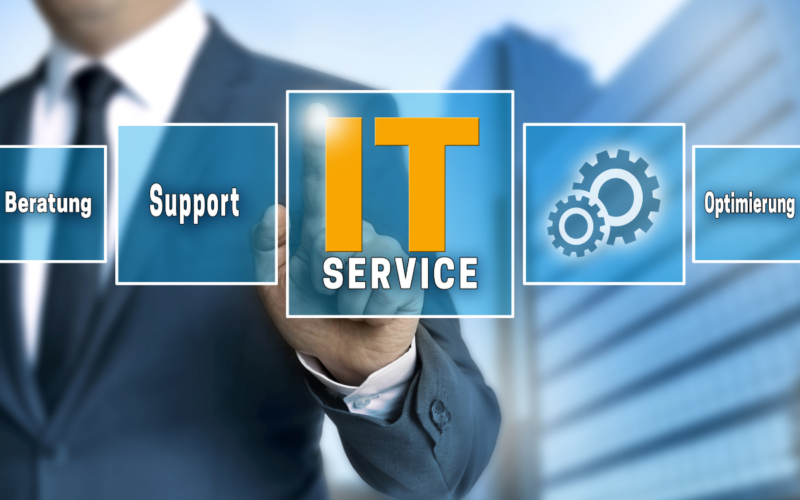Have you ever wondered how fintech innovations are reshaping financial services and what’s driving their rapid evolution?
In 2023, the global fintech market was valued at $294.74 billion and is expected to grow to $340.10 billion in 2024. By 2032, it is projected to reach $1,152.06 billion, with a compound annual growth rate (CAGR) of 16.5% from 2024 to 2032. So, How can businesses harness these cutting-edge technologies to stay competitive?
Our guide explores the latest trends in fintech software development, from AI-powered analytics to blockchain integrations. We’ll delve into the critical aspects of developing fintech solutions and how they can revolutionize financial services.
If you’re eager to understand how to leverage these advancements for your business, read on to discover the benefits and strategies for success.
What is Fintech Software Development?
Fintech software development refers to the creation and implementation of technology solutions designed to enhance and streamline financial services. This encompasses a broad range of applications, including digital banking platforms, payment processing systems, investment management tools, and blockchain technologies. The goal is to make financial operations more efficient, secure, and user-friendly.
The fintech industry has evolved from traditional banking solutions to incorporating cutting-edge technologies like AI and blockchain. This evolution reflects the sector’s shift toward more innovative, secure, and user-centric financial solutions, driving significant advancements in how financial services are delivered and experienced.
Fintech vs Traditional Banking
Fintech and traditional banking differ primarily in their approach to delivering financial services. Fintech leverages technology to offer streamlined, digital-first solutions with a focus on innovation and user experience. Traditional banking relies on established, brick-and-mortar institutions with more conventional processes and regulatory frameworks. While fintech aims for efficiency and accessibility, traditional banks emphasize stability and comprehensive service coverage.
Comparison Table: Fintech vs. Traditional Banking
| Aspect | Fintech | Traditional Banking |
| Service Delivery | Digital-first, online platforms | Physical branches and online services |
| Technology | Advanced technologies like AI, blockchain | Legacy systems with gradual tech adoption |
| User Experience | Seamless, app-based interfaces | Standardized interfaces, often less agile |
| Speed of Innovation | Rapid development and deployment | Slower due to regulatory constraints |
| Cost Efficiency | Typically lower costs and fees | Higher operational costs |
| Regulatory Approach | Evolving and adaptive | Strict and well-established regulations |
| Customer Reach | Global and highly accessible | Often regional with physical limitations |
| Product Offerings | Specialized and niche financial products | Broad range of traditional financial products |
Types of Fintech Software Development
Fintech software development encompasses a variety of specialized solutions designed to enhance financial services through technology. Here are the primary types:
- Digital Banking Solutions
Core Banking Systems: Facilitates the management of everyday banking operations such as account management, transaction processing, and customer service.
Mobile Banking Apps: Offers customers convenient access to banking services from their smartphones, including account management, money transfers, and bill payments.
You might be interested in:
How to find the right outsourcing partner for your mobile app development?
- Payment Solutions
Payment Gateways: Secure systems that process online payments by connecting merchants, banks, and payment networks.
Mobile Payment Systems: Enables transactions through mobile devices, including digital wallets and contactless payment solutions.
- Personal Finance Management
Budgeting Apps: Helps users track expenses, manage budgets, and achieve financial goals.
Investment Platforms: Provides tools for managing investments, including robo-advisors and trading platforms.
- Lending Platforms
Peer-to-Peer (P2P) Lending: Connects borrowers with individual investors directly, bypassing traditional banks.
Credit Scoring Systems: Uses algorithms and alternative data to assess creditworthiness and determine lending risks.
- Blockchain and Cryptocurrency
Blockchain Solutions: Enhances transparency and security in transactions through decentralized ledgers.
Also read: The nuts & bolts for architecting Blockchain solutions
Cryptocurrency Exchanges: Facilitates the buying, selling, and trading of digital currencies.
- Regtech Solutions
Compliance Tools: Helps financial institutions adhere to regulatory requirements and manage risk.
Fraud Detection Systems: Utilizes AI and machine learning to identify and prevent fraudulent activities.
- Insurtech Solutions
Digital Insurance Platforms: Streamlines insurance processes, from policy management to claims processing.
Risk Assessment Tools: Uses data analytics to assess and price insurance risks more accurately.
Benefits of Fintech Software Development
In today’s competitive market, fintech software offers several key benefits for businesses:
- Enhance Customer Experience and Satisfaction
Fintech solutions streamline financial processes, making transactions faster and more intuitive for users. Features like easy-to-use apps, instant updates, and seamless integrations contribute to a better customer experience. This efficiency boosts customer satisfaction and loyalty, leading to higher retention rates and positive reviews. - Reduce Operational Costs and Risks
Automation is a major advantage of fintech software, minimizing the need for manual processes and reducing the likelihood of human error. By streamlining operations, businesses can cut costs related to administrative tasks and operational inefficiencies. Additionally, advanced algorithms and fraud detection systems help manage financial risks more effectively. - Increase Revenue and Profitability
Fintech tools enable businesses to explore new revenue streams and optimize existing ones. Data-driven insights help in identifying profitable opportunities and refining strategies for better financial performance. By enhancing operational efficiency and customer engagement, fintech solutions contribute to increased revenue and improved profitability. - Comply with Regulatory and Security Standards
Fintech software is designed to adhere to stringent regulatory and security requirements. It incorporates advanced security measures and compliance features to protect sensitive data and ensure adherence to financial regulations. This helps businesses avoid legal issues and safeguard against potential cyber threats. - Stand Out with Innovation
Leveraging technologies like AI, blockchain, and big data analytics, fintech solutions offer cutting-edge features that differentiate businesses from traditional financial institutions. These innovative capabilities address evolving customer needs and set companies apart in a crowded marketplace, positioning them as leaders in the financial sector.
Must-Have Features of Financial Software Systems
When choosing financial software, it’s essential to look for features that address your specific needs and enhance your operations. Here are the must-have features that should be on your radar:
- Security and Compliance
Robust security measures are critical for protecting sensitive financial data. Look for features like encryption, multi-factor authentication, and regular security updates. Compliance with regulations such as GDPR, PCI-DSS, and others ensures that your software adheres to industry standards and legal requirements.
Here are some FinTech regulations that businesses have to comply with:
| Regulation | Purpose |
| General Data Protection Regulation (GDPR) | Protects personal data and privacy of EU citizens |
| Payment Card Industry Data Security Standard (PCI-DSS) | Ensures secure handling of credit card information |
| Anti-Money Laundering (AML) Regulations | Prevents money laundering and financing of terrorism |
| Know Your Customer (KYC) | Verifies customer identity to prevent fraud |
| Financial Conduct Authority (FCA) Rules | Regulates financial services and markets in the UK |
| Dodd-Frank Act | Regulates financial markets and consumer protection in the US |
| Consumer Financial Protection Bureau (CFPB) Regulations | Protects consumers in financial transactions and services |
| Sarbanes-Oxley Act | Enhances financial reporting accuracy and internal controls |
| European Markets in Financial Instruments Directive (MiFID II) | Regulates financial markets and enhances transparency in the EU |
| Gramm-Leach-Bliley Act | Protects consumer financial privacy in the US |
- Automated Transaction Processing
Automation streamlines financial transactions, reducing the need for manual input and minimizing errors. Automated processing for payments, reconciliations, and reporting helps save time and improves accuracy, leading to more efficient financial management. - Real-Time Reporting and Analytics
Access to real-time data is crucial for making informed financial decisions. Features like customizable dashboards, real-time reporting, and advanced analytics provide valuable insights into your financial status and performance, enabling better strategic planning.
Turn data into value with Codewave’s Data Analytics Development services. We provide actionable insights and design thinking for effective data visualization, giving your business a competitive edge.
- Scalability and Integration
Financial software should be scalable to accommodate your business’s growth and evolving needs. Look for systems that offer integration with other essential tools and platforms, such as CRM systems, ERP software, and payment gateways, to ensure seamless data flow and operational efficiency. - User-Friendly Interface
A well-designed, intuitive interface enhances user experience and reduces the learning curve. Features like easy navigation, customizable layouts, and clear visualizations ensure that users can efficiently manage financial tasks and access important information without unnecessary complexity. - Customizable Features and Modules
Every business has unique needs, so customizable features and modules are essential. Look for software that allows you to tailor functionalities, reports, and workflows to match your specific requirements, ensuring the system aligns perfectly with your business processes.
Promising Fintech Market Trends in 2024
- Artificial Intelligence (AI) and Machine Learning (ML)
AI and ML are transforming fintech by automating processes, enhancing decision-making, and personalizing customer experiences. These technologies enable predictive analytics, fraud detection, and more efficient operations. - Blockchain and Cryptocurrency
Blockchain provides secure, transparent transactions and smart contracts, while cryptocurrencies offer new financial products and investment opportunities. Both are reshaping how transactions are recorded and verified. - Open Banking and API Economy
Open banking fosters innovation by allowing third-party developers access to banking data through APIs. This promotes greater financial inclusion, competition, and personalized financial services. - Digital Identity and Biometrics
Digital identity solutions and biometrics improve security and streamline user authentication. They enhance fraud prevention and user experience by providing secure and convenient access. - Green and Social Fintech
Green fintech focuses on sustainable investments and eco-friendly financial practices. Social fintech emphasizes financial inclusion and products that support social impact and community development. - Other Emerging Trends
Quantum computing promises breakthroughs in data processing, while cloud computing, 5G, IoT, big data, and analytics offer advanced capabilities for scalable and efficient financial solutions.
What is Outsourcing a fintech software?
Outsourcing fintech software involves delegating the development and maintenance of financial technology solutions to external vendors or service providers. This approach allows businesses to leverage specialized expertise, manage costs more effectively, and focus on core activities while experts handle complex software tasks.
Advantages of Outsourcing
- Tap into specialized knowledge and advanced skills that may not be available in-house.
- Reduce expenses related to hiring, training, and maintaining an in-house development team.
- Easily scale resources up or down based on project needs and business growth.
- Allow your team to concentrate on strategic objectives while outsourcing handles technical details.
- Benefit from established processes and experienced teams that expedite the development cycle.
Essential Steps for Fintech Software Development Outsourcing
With the increasing complexity of fintech software projects, knowing the essential steps for outsourcing can set the stage for navigating potential challenges effectively.
1. Define Your Project Scope and Requirements
Start by clearly outlining what you want your fintech software to achieve. This involves specifying the features, functionality, and technical requirements of the software. A well-defined scope ensures that everyone involved has a clear understanding of the project goals, helping to avoid misunderstandings and scope creep.
This stage should include detailed documentation of your business needs, target audience, compliance requirements, and desired outcomes.
2. Choose Your Outsourcing Model and Partner
Select an outsourcing model that best fits your project’s needs and budget. Common models include fixed-price, where you pay a set amount for the entire project; time and materials, where you pay based on the time and resources used; and dedicated teams, where you have a team working exclusively on your project.
Once you’ve decided on a model, choose a reliable outsourcing partner with a proven track record in fintech software development. Evaluate potential partners based on their expertise, experience, and client reviews.
3. Sign a Contract and Establish a Communication Plan
Draft and sign a detailed contract that covers all aspects of the project, including scope, timeline, costs, and deliverables. This legal agreement should also address confidentiality, intellectual property rights, and dispute resolution procedures. Alongside the contract, establish a robust communication plan.
Determine the frequency and methods of communication (e.g., weekly meetings, project management tools) to ensure that you and your outsourcing partner are on the same page throughout the development process.
4. Monitor and Manage the Project Progress
Regularly track the progress of your project to ensure it adheres to the timeline and budget. This involves reviewing deliverables, assessing performance, and addressing any issues or changes that arise.
Implement a project management system to keep track of tasks, milestones, and deadlines. Maintain open lines of communication with your outsourcing partner to quickly resolve any challenges and ensure the project stays on track.
5. Test and Deploy the Software Solution
Before the final deployment, conduct thorough testing to identify and fix any bugs or issues. This includes functional testing to ensure all features work as intended, performance testing to evaluate the software’s efficiency, and security testing to safeguard against vulnerabilities.
Once testing is complete and the software meets your requirements, proceed with deployment. Ensure that you have a plan for user training and support to facilitate a smooth transition and adoption of the new software.
Challenges in Fintech Software Development
After understanding the essential steps for successful fintech software development outsourcing, it’s important to address the challenges that come with it.
Expertise, Experience, and Resources Needed
Developing fintech software requires specialized knowledge and extensive experience in financial technologies and software engineering. Finding and retaining skilled developers with expertise in both finance and technology can be challenging.
Understanding Market Trends, Customer Needs, and Business Goals
Keeping up with rapidly changing market trends and evolving customer expectations is vital. Developers must align their solutions with current industry trends and the specific needs of their target audience. This involves thorough research and analysis to ensure the software supports business objectives and remains competitive.
Choosing the Right Technologies, Tools, and Platforms
Selecting appropriate technologies and tools is critical for the success of fintech software. This involves choosing the right programming languages, development frameworks, and platforms that match the project’s requirements. The wrong choice can lead to inefficiencies, scalability issues, and increased costs.
Following Best Practices, Methodologies, and Standards
Adhering to industry best practices and methodologies is essential for delivering robust fintech solutions. This includes following established development frameworks, coding standards, and quality assurance practices. Compliance with regulatory and security standards is also crucial to ensure the software meets legal and operational requirements.
Ensuring Quality, Performance, and Security
Maintaining high quality, performance, and security throughout the development process is a significant challenge. The software must be reliable, perform well under various conditions, and protect sensitive financial data from breaches. Rigorous testing and continuous monitoring are necessary to address these concerns and deliver a secure and efficient product.
Conclusion
Exploring fintech software development? Codewave offers expertise in crafting innovative solutions tailored to your needs. Our team excels in custom software development, blockchain, and AI-driven solutions, ensuring your fintech project stands out.
By collaborating with us, you gain access to cutting-edge technologies and strategic insights that can propel your business forward. Let’s turn your vision into reality—reach out today to harness the full potential of fintech innovation!
Codewave is a design thinking led digital transformation company enabling organisations with playful innovation using AI & ML, IoT & Edge, AR, VR, Cloud, Blockchain, and Data.







